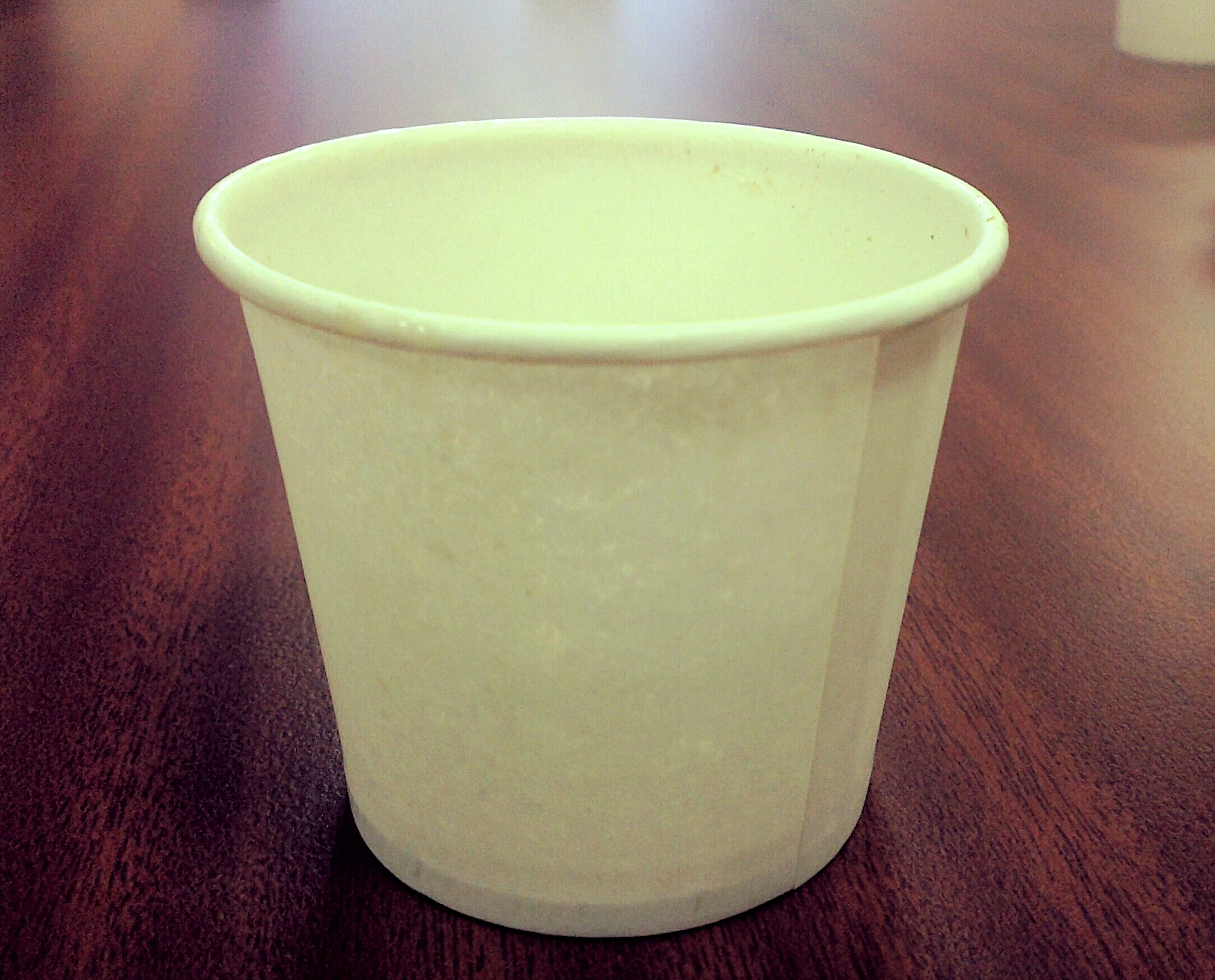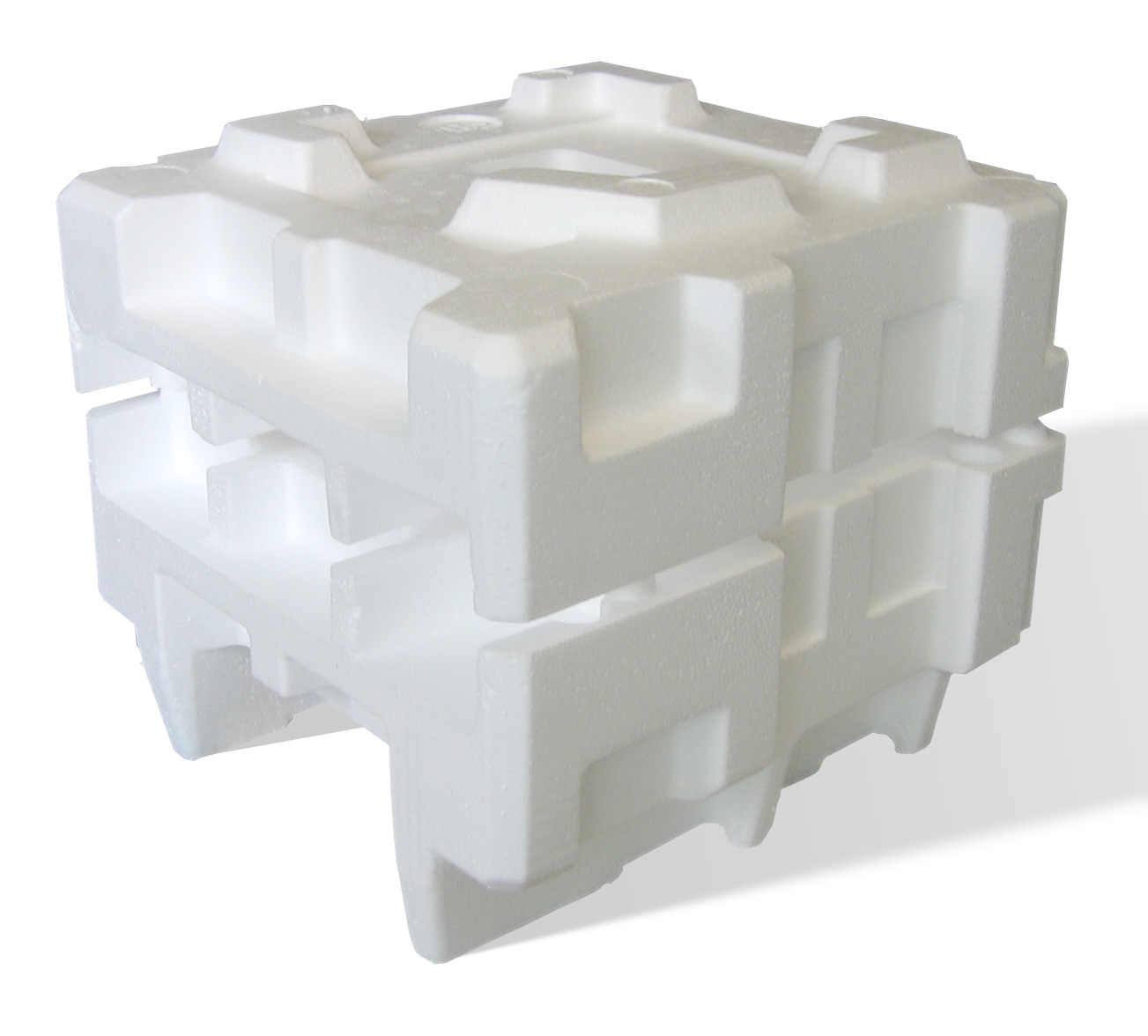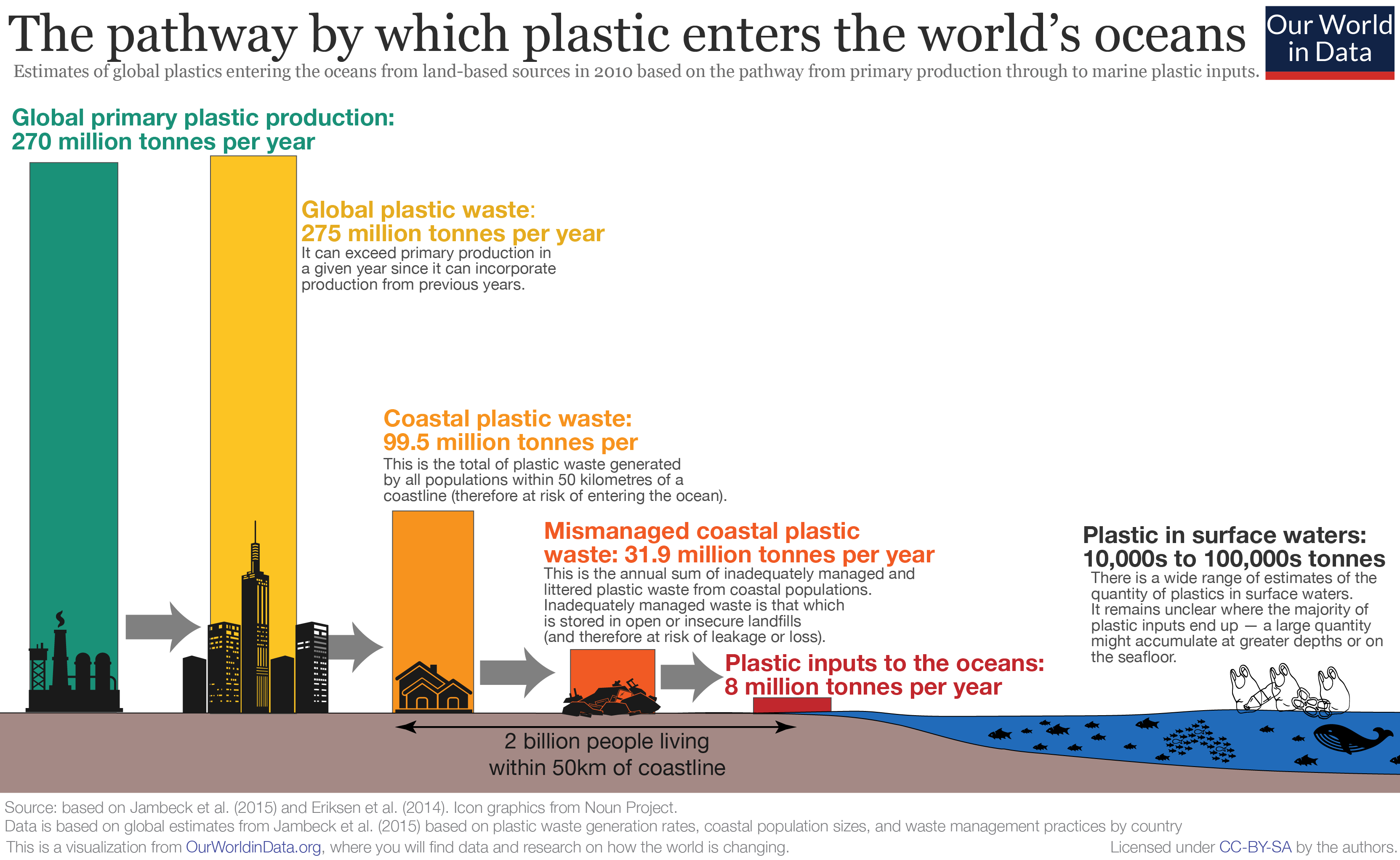|
Foam Cup
A disposable cup is a type of tableware and disposable food packaging. Disposable cup types include paper cups, plastic cups and foam cups. Expanded polystyrene is used to manufacture foam cups, and polypropylene is used to manufacture plastic cups. As they are produced for single use, disposable cups and other similar disposable products constitute a major source of consumer and household waste, such as paper waste and plastic waste. It has been estimated that the average household discards around 70 disposable cups every year. 108 billion cups are consumed in the US per year, and the UK uses an estimated 2.5 billion paper cups every year. History The disposable cone-shaped paper cup was invented in 1908 by Lawrence Luellen, and in 1912 Luellen and Hugh Moore began marketing the Health Kup, another paper disposable cup. The Health Kup was designed to create a means for people to drink water from public water barrels without spreading germs, which occurred when people w ... [...More Info...] [...Related Items...] OR: [Wikipedia] [Google] [Baidu] |
Polystyrene
Polystyrene (PS) is a synthetic polymer made from monomers of the aromatic hydrocarbon styrene. Polystyrene can be solid or foamed. General-purpose polystyrene is clear, hard, and brittle. It is an inexpensive resin per unit weight. It is a poor barrier to oxygen and water vapour and has a relatively low melting point. Polystyrene is one of the most widely used plastics, the scale of its production being several million tonnes per year. Polystyrene can be naturally transparent, but can be colored with colorants. Uses include protective packaging (such as packing peanuts and in the jewel cases used for storage of optical discs such as CDs and occasionally DVDs), containers, lids, bottles, trays, tumblers, disposable cutlery, in the making of models, and as an alternative material for phonograph records. As a thermoplastic polymer, polystyrene is in a solid (glassy) state at room temperature but flows if heated above about 100 °C, its glass transition temperature. I ... [...More Info...] [...Related Items...] OR: [Wikipedia] [Google] [Baidu] |
Paper Cup
A paper cup is a disposable cup made out of paper and often lined or coated with plastic or wax to prevent liquid from leaking out or soaking through the paper. It may be made of recycled paper and is widely used around the world. History Paper cups have been documented in imperial China, where paper was invented by 2nd century BC. Paper cups were known as ''chih pei'' and were used for the serving of tea. They were constructed in different sizes and colors, and were adorned with decorative designs. Textual evidence of paper cups appears in a description of the possessions of the Yu family, from the city of Hangzhou. The modern paper cup was developed in the 20th century. In the early 20th century, it was common to have shared glasses or dippers at water sources such as school faucets or water barrels in trains. This shared use caused public health concerns. One notable investigation into their use was the study by Alvin Davison, biology professor at Lafayette College, published ... [...More Info...] [...Related Items...] OR: [Wikipedia] [Google] [Baidu] |
Nissin Foods
Nissin Food Products Co., Ltd. is a Japanese food company that specializes in the production and sale of convenience food and instant noodles. History Founding and early years The company was established in Japan on September 1, 1948, by Taiwanese immigrant Go Pek-Hok (1910–2007), Japanese name Momofuku Ando (the creator of instant ramen in 1958) as . Ten years later, the company introduced the first instant ramen noodle product, Chikin Ramen (Chicken Ramen). Soon thereafter, the company name was changed to . The company established a US subsidiary Nissin Foods in 1970 and, starting in 1972, sold instant ramen noodle products under the name Top Ramen. Instant noodles (1958) and Cup Noodles (1971) were both invented by Momofuku Ando. Nissin Foods has its headquarters in Yodogawa-ku, Osaka. Recent years and expansion The company moved to its current headquarters in 1977, when the construction of the building was completed. In 2007, Myojo Foods Co., Ltd. became a wholl ... [...More Info...] [...Related Items...] OR: [Wikipedia] [Google] [Baidu] |
Oktoberfest
The Oktoberfest (; bar, Wiesn, Oktobafest) is the world's largest Volksfest, featuring a beer festival and a travelling carnival. It is held annually in Munich, Bavaria, Germany. It is a 16- to 18-day folk festival running from mid- or late-September to around the first Sunday in October, with more than six million international and national visitors attending the event. Locally, it is called , after the colloquial name for the fairgrounds, Theresienwiese. The Oktoberfest is an important part of Bavarian culture, having been held since the year 1810. Other cities across the world also hold Oktoberfest celebrations that are modeled after the original Munich event. During the event, large quantities of Oktoberfest Beer are consumed. For example, during the 16-day festival in 2014, were served, making it the year where the most beer was consumed at the Oktoberfest. Visitors also enjoy numerous attractions, such as amusement rides, sidestalls, and games. There is also a w ... [...More Info...] [...Related Items...] OR: [Wikipedia] [Google] [Baidu] |
James Cropper (business)
James Cropper may refer to: * James Cropper (abolitionist) (1773–1840), English businessman in Liverpool and philanthropist * James Cropper (politician) (1823–1900), British politician * James Cropper (priest) (1862–1938), British Anglican clergyman *Sir James Cropper (businessman) (born 1938), British paper manufacturer and Lord-Lieutenant of Cumbria * James Cropper plc, English papermaking company {{hndis, Cropper, James ... [...More Info...] [...Related Items...] OR: [Wikipedia] [Google] [Baidu] |
Simply Cups
Simply may refer to: * ''Simply'' (Blossom Dearie album), 1982 * ''Simply'' (K. T. Oslin album), 2015 * "Simply", a song by De La Soul from the 2001 album '' AOI: Bionix'' * Simply Market Simply Market is a brand of French supermarkets formed in 2005. This brand is a new concept to eventually replace Atac supermarkets. The brand belongs to the AuchanSuper subsidiary that manages the branches of Auchan supermarkets. The group pla ..., a French supermarket chain * Simply Beverages, an American fruit juice company See also * Simple (other) {{disambiguation ... [...More Info...] [...Related Items...] OR: [Wikipedia] [Google] [Baidu] |
McDonald's
McDonald's Corporation is an American Multinational corporation, multinational fast food chain store, chain, founded in 1940 as a restaurant operated by Richard and Maurice McDonald, in San Bernardino, California, United States. They rechristened their business as a hamburger stand, and later turned the company into a Franchising, franchise, with the Golden Arches logo being introduced in 1953 at a location in Phoenix, Arizona. In 1955, Ray Kroc, a businessman, joined the company as a franchise agent and proceeded to purchase the chain from the McDonald brothers. McDonald's had its previous headquarters in Oak Brook, Illinois, but moved its global headquarters to Chicago in June 2018. McDonald's is the world's largest restaurant chain by revenue, serving over 69 million customers daily in over 100 countries in more than 40,000 outlets as of 2021. McDonald's is best known for its hamburgers, cheeseburgers and french fries, although their menus include other items like ch ... [...More Info...] [...Related Items...] OR: [Wikipedia] [Google] [Baidu] |
Developed Country
A developed country (or industrialized country, high-income country, more economically developed country (MEDC), advanced country) is a sovereign state that has a high quality of life, developed economy and advanced technological infrastructure relative to other less industrialized nations. Most commonly, the criteria for evaluating the degree of economic development are gross domestic product (GDP), gross national product (GNP), the per capita income, level of industrialization, amount of widespread infrastructure and general standard of living. Which criteria are to be used and which countries can be classified as being developed are subjects of debate. A point of reference of US$20,000 in 2021 USD nominal GDP per capita for the International Monetary Fund (IMF) is a good point of departure, it is a similar level of development to the United States in 1960. Developed countries have generally more advanced post-industrial society, post-industrial economies, meaning the terti ... [...More Info...] [...Related Items...] OR: [Wikipedia] [Google] [Baidu] |
Curbside Recycling
Kerbside collection or curbside collection is a service provided to households, typically in urban and suburban areas, of collecting and disposing of household waste and recyclables. It is usually accomplished by personnel using specially built vehicles to pick up household waste in containers that are acceptable to, or prescribed by, the municipality and are placed on the kerb. History Before the 20th century, the amount of waste produced by a household was relatively small. Household waste was often simply thrown out of an open window, buried in the garden or deposited in outhouses (see more at urban archaeology). When human concentrations became more dense, waste collectors, called nightmen or gong farmers were hired to collect the night soil from pail closets, performing their duties only at night (hence the name). Meanwhile, disposing of refuse became a problem wherever cities grew. Often refuse was placed in unusable areas just outside the city, such as wetlands and tidal z ... [...More Info...] [...Related Items...] OR: [Wikipedia] [Google] [Baidu] |
Litter
Litter consists of waste products that have been discarded incorrectly, without consent, at an unsuitable location. Litter can also be used as a verb; to litter means to drop and leave objects, often man-made, such as aluminum cans, paper cups, food wrappers, cardboard boxes or plastic bottles on the ground, and leave them there indefinitely or for other people to dispose of as opposed to disposing of them correctly. Large and hazardous items of rubbish such as tires, electrical appliances, electronics, batteries and large industrial containers are sometimes dumped in isolated locations, such as national forests and other public lands. It is a human impact on the environment and remains a serious environmental problem in many countries. Litter can exist in the environment for long periods of time before decomposition and be transported over large distances into the world's oceans. Litter can affect the quality of life. Cigarette butts are the most littered item in the world, ... [...More Info...] [...Related Items...] OR: [Wikipedia] [Google] [Baidu] |
Plastic Pollution
Plastic pollution is the accumulation of plastic objects and particles (e.g. plastic bottles, bags and microbeads) in the Earth's environment that adversely affects humans, wildlife and their habitat. Plastics that act as pollutants are categorized by size into micro-, meso-, or macro debris. Plastics are inexpensive and durable, making them very adaptable for different uses; as a result, manufacturers choose to use plastic over other materials. However, the chemical structure of most plastics renders them resistant to many natural processes of degradation and as a result they are slow to degrade. Together, these two factors allow large volumes of plastic to enter the environment as mismanaged waste and for it to persist in the ecosystem. Plastic pollution can afflict land, waterways and oceans. It is estimated that 1.1 to 8.8 million tonnes of plastic waste enters the ocean from coastal communities each year. It is estimated that there is a stock of 86 million tons of plastic ... [...More Info...] [...Related Items...] OR: [Wikipedia] [Google] [Baidu] |
Plastic-coated Paper
Plastic-coated paper is a coated or laminated composite material made of paper or paperboard with a plastic layer or treatment on a surface. This type of coated paper is most used in the food and drink packaging industry. Function The plastic is used to improve functions such as water resistance, tear strength, abrasion resistance, ability to be heat sealed, etc. Some papers are laminated by heat or adhesive to a plastic film to provide barrier properties in use. Other papers are coated with a melted plastic layer: curtain coating is one common method. Printed papers commonly have a top coat of a protective polymer to seal the print, provide scuff resistance, and sometimes gloss. Some coatings are processed by UV curing for stability. Components Most plastic coatings in the packaging industry are polyethylene (LDPE) and to a much lesser degree PET. Liquid packaging board cartons typically contain 74% paper, 22% plastic and 4% aluminum. Frozen food cartons are usually made u ... [...More Info...] [...Related Items...] OR: [Wikipedia] [Google] [Baidu] |






